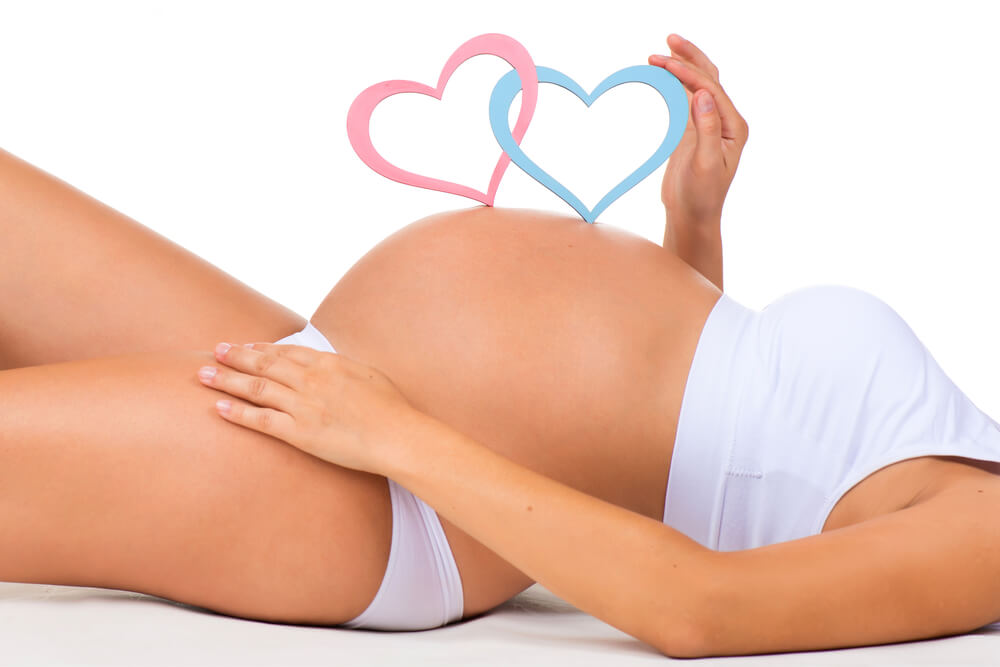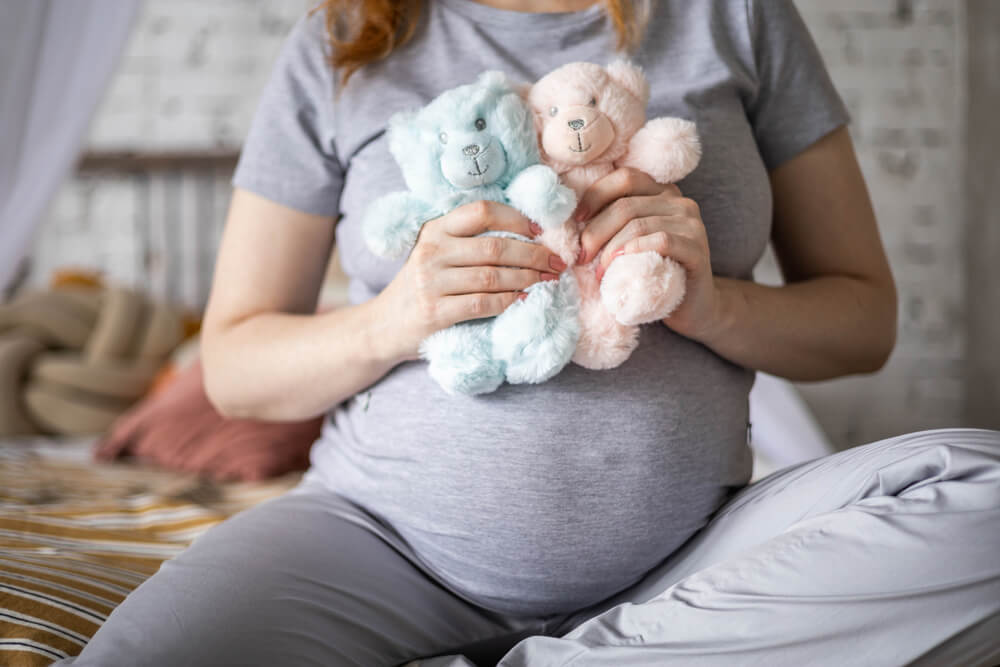When a woman carries two fetuses in the uterus instead of one, this is called a twin pregnancy. This type of pregnancy is considered to be rare, and the causes for it can be found in the family anamnesis, usage of fertility treatments, and alike. In today’s article, we wanted to bring some information about twin pregnancy symptoms, types of twins, what are your chances of having twins, and what might be the complications patients sometimes face.
Because of the different particularities of twin pregnancies, certain clinics such as My OBGYN Specialists have specialized programs that offer guidance and help to women expecting twins. These programs help women handle twin pregnancies because they can be pretty demanding, and sometimes patients need additional expert support.
Regarding chances of having twins, experts state that they are very low and that one pregnancy out of 250 is a twin pregnancy. To confirm your pregnancy, the best option is a prenatal ultrasound which uses sound waves to create images of the uterus and the fetus, or in this case, two fetuses.
Different circumstances might increase the person’s chance of having twins, and they can include:
- Family history where the mother’s side has cases of fraternal twins
- Age can be a factor because women over 35 tend to release more eggs during the ovulation period
- Obesity can be a factor because people with a high BMI (body mass index over 30) tend to conceive twins more often
- Fertility treatments, such as IVF, help women conceive twins a lot more
- Previous history where you have already carried twins can raise your chances of carrying twins again
Signs of Twin Pregnancy
Although experts have identified sure signs of twin pregnancy, it is essential to note that they do not always signify that you are actually pregnant with twins. The only way to confirm a twin pregnancy is through medical examinations such as ultrasound or an evaluation by a healthcare provider. This said, below you can find a list of signs which might help you move a step further:
- Movement of the fetus in more than one area
- Strong fetal movement
- Early fetal movement
- Quick weight gain
- Your belly is getting larger than you expected
- High levels of hCG (pregnancy hormone)
- High level of AFP (alpha-fetoprotein) produced by the liver of the fetus
- More than one heartbeat present on the fetus Doppler
- Severe morning sickness
- Increase in back pain

Twin Pregnancy Symptoms
During a twin pregnancy, women may experience various symptoms that are similar to symptoms of a singleton (one fetus) pregnancy, but they may be more pronounced or occur earlier. Here are some common twin pregnancy symptoms:
- Fast weight gain: Women carrying twins tend to gain weight more quickly than those carrying a single baby due to the additional fetal weight and amniotic fluid.
- Larger baby bump: The uterus expands more rapidly in a twin pregnancy, leading to a larger belly size than in a singleton pregnancy.
- Morning sickness: Many women with twin pregnancies experience more severe morning sickness, including nausea and vomiting, than those carrying one baby.
- Intense fatigue: Fatigue is a common symptom in any pregnancy, but it can be more pronounced in twin pregnancies due to the increased demands on the body.
- Increased appetite: Expecting mothers of twins may experience heightened hunger and cravings due to the greater nutritional requirements of two babies.
- Breathlessness: With two babies taking up space in the uterus, pressure on the diaphragm can cause shortness of breath or difficulty breathing.
- Swollen feet and ankles: Edema (swelling) in the lower extremities is common in pregnancy, but it can be more noticeable in twin pregnancies due to increased fluid retention.
- Stretch marks: Because the abdomen expands very fast, the skin gets stretched, and this creates marks that need to be treated with specific ointments.
Every pregnancy is unique, and not all patients experience the same symptoms. If you think that you may be pregnant with twins, it is recommended to consult with your healthcare provider for appropriate prenatal care and monitoring.
Types of Twins
When it comes to the types of twins, they are categorized into two categories: identical and fraternal twins.
Fraternal twins happen when in one cycle, two eggs are fertilized by two spermatozoids. This causes each baby to have a separate placenta, and their DNA is similar to the DNA of siblings who are of different ages. Fraternal twins can be of different or the same sex.
Identical twins happen when one egg and one sperm create an embryo, and it gets divided into two. These twins can share a placenta or have separate ones. Identical twins are of the same sex always.
Another type of twins are conjoined twins, but they are very rare, and this actually occurs when the embryo does not divide correctly. Then the babies’ bodies are connected, and they might even share organs. The most common points of connection are either the chest or the abdomen. This can be quite complicated for the person, and often, numerous surgeries are done to make their lives more practical.
Additional Information
Here are some additional pieces of advice and information which might help you when expecting twins:
- Fertility treatments can help with twin pregnancies because the medication taken causes the release of more than one egg, and more than one embryo can be implanted.
- A full-term pregnancy in twins is considered up to week 36, but many people go into labor even sooner.
- Preterm labor can occur during twin pregnancies, so make sure you monitor your health regularly.
- Prenatal care for a twin pregnancy is crucial because there is a higher risk of complications when a person is carrying twins. Doctor checkups need to be more frequent so that issues can be detected beforehand.
- Many complications might occur in twin pregnancies, which is why many women go to maternal-fetal medicine experts who are actually obstetricians who specialize in the detection, prevention, and care for any complications during pregnancies that are considered high-risk.

Complications in Twin Pregnancies
Here are some of the common complications that can occur in twin pregnancies:
- Preterm birth: Twins are more likely to be born prematurely, often before the full 37 weeks of gestation.
- Low birth weight: Twin pregnancies are more likely to result in babies with a lower birth weight than singleton pregnancies.
- Twin-to-twin transfusion syndrome (TTTS): TTTS occurs in identical twin pregnancies when there is an imbalance in blood flow between the babies through the shared placenta. One twin receives too much blood, while the other receives too little.
- Preeclampsia: Twin pregnancies have a higher risk of developing preeclampsia, a condition characterized by high blood pressure and organ damage, usually the liver and kidneys.
- Gestational diabetes: The risk of developing gestational diabetes, a type of diabetes that occurs during pregnancy, is higher in twin pregnancies.
- Congenital anomalies: Twins, especially identical twins, may have a higher risk of certain congenital anomalies such as spina bifida.
- Postpartum hemorrhage: Twin pregnancies increase the risk of postpartum hemorrhage, which is excessive bleeding after delivery. This risk is higher due to the increased size of the uterus and the potential for retained placental tissue.
- Anemia
- Low amniotic fluid
- Too much amniotic fluid
- Brain bleeding
- Breathing issues
- Feeding issues
- Vision problems
Contact Us!
Twin pregnancies can be quite demanding and hard, so call our clinic and let us support and guide you through a successful pregnancy.


